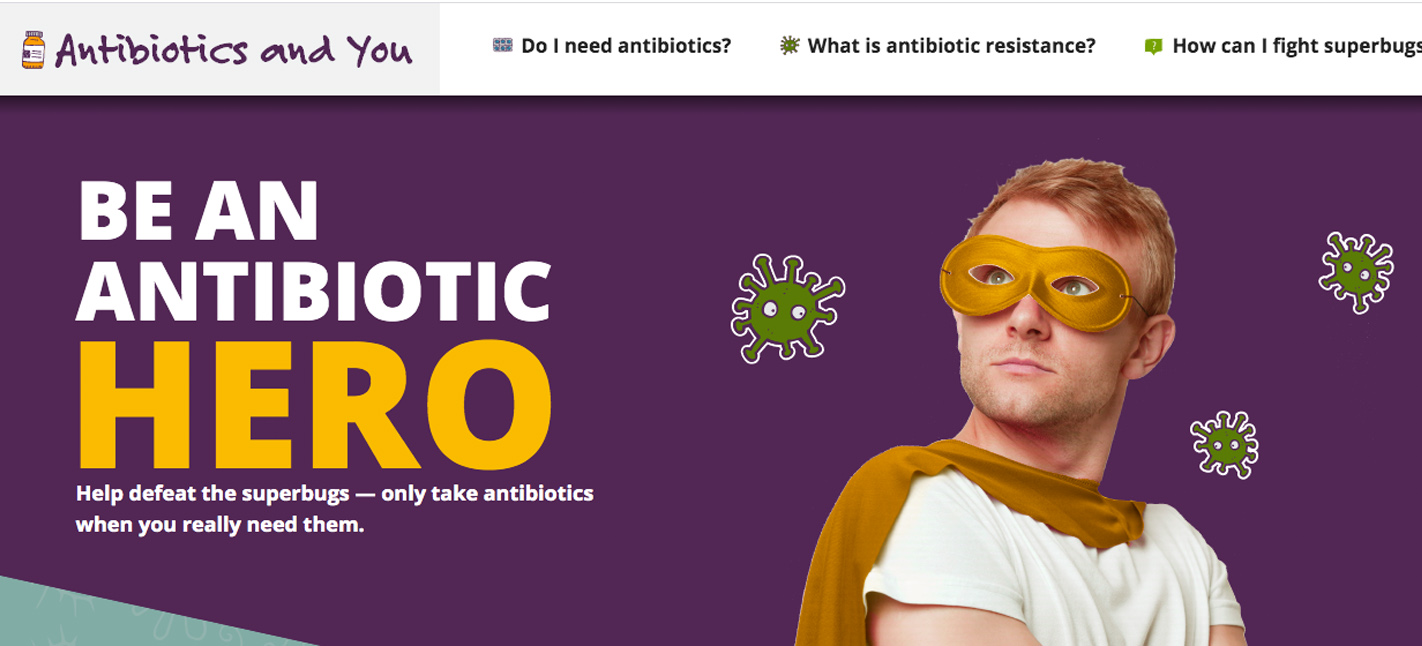The Antibiotic Resistance Action Center (ARAC) at the George Washington University Milken Institute School of Public Health has launched the website AntibioticsandYou.org. The website aims to be a helpful resource during the heart of the cold and flu season – a time when antibiotics are in high demand by patients even though neither condition responds to antibiotics. Research conducted by the World Health Organization found that almost two-thirds of some 10,000 people surveyed across 12 countries believe antibiotics can be used to treat colds and the flu. Antibiotics treat bacterial infections but not viruses such as the flu or the common cold.
The main goals of the website are to educate patients on the growing public health crisis of antibiotic resistance and appropriate antibiotic use. Most people in the U.S. and globally don’t know that antibiotic-resistant infections are becoming increasingly common. As bacteria become increasingly resistant to antibiotics, even common infections, such as urinary tract infections, will be difficult to treat and can become life-threatening. Without urgent action in all countries, antibiotic-resistant infections are estimated to kill 10 million people per year worldwide by 2050 – that’s roughly one person dying every three seconds.
“Everyone has a role to play in protecting antibiotics from overuse and misuse including patients. We need to ensure we are using antibiotics only when absolutely necessary in every setting: human medicine, industrial farming, and in plant and crop agriculture,” said Laura Rogers, who serves as deputy director for ARAC. The website also aims to educate patients on the dangers of taking antibiotics when they are not warranted. ARAC researchers have heard anecdotally from clinicians across the country that many of their patients believe there are no consequences for taking an antibiotic “just in case.”
The website seeks to dispel this belief because taking antibiotics when not needed won’t help patients feel better, and doing so could actually make them more sick. Like any medicine, antibiotics can have serious side effects, so patients could end up with more symptoms — like a yeast infection, rash, or diarrhea. The educational website has several interactive features including a quiz on when antibiotics will help make someone better, myths vs. facts, and true/false questions on every page. In addition, there is an “antibiotic superhero” who has fallen ill and is doing his part to protect life-saving antibiotics by using over the counter medicines and other non-antibiotic treatments.
The website was made possible through a grant from MERCK and in partnership with the Urgent Care Association.


